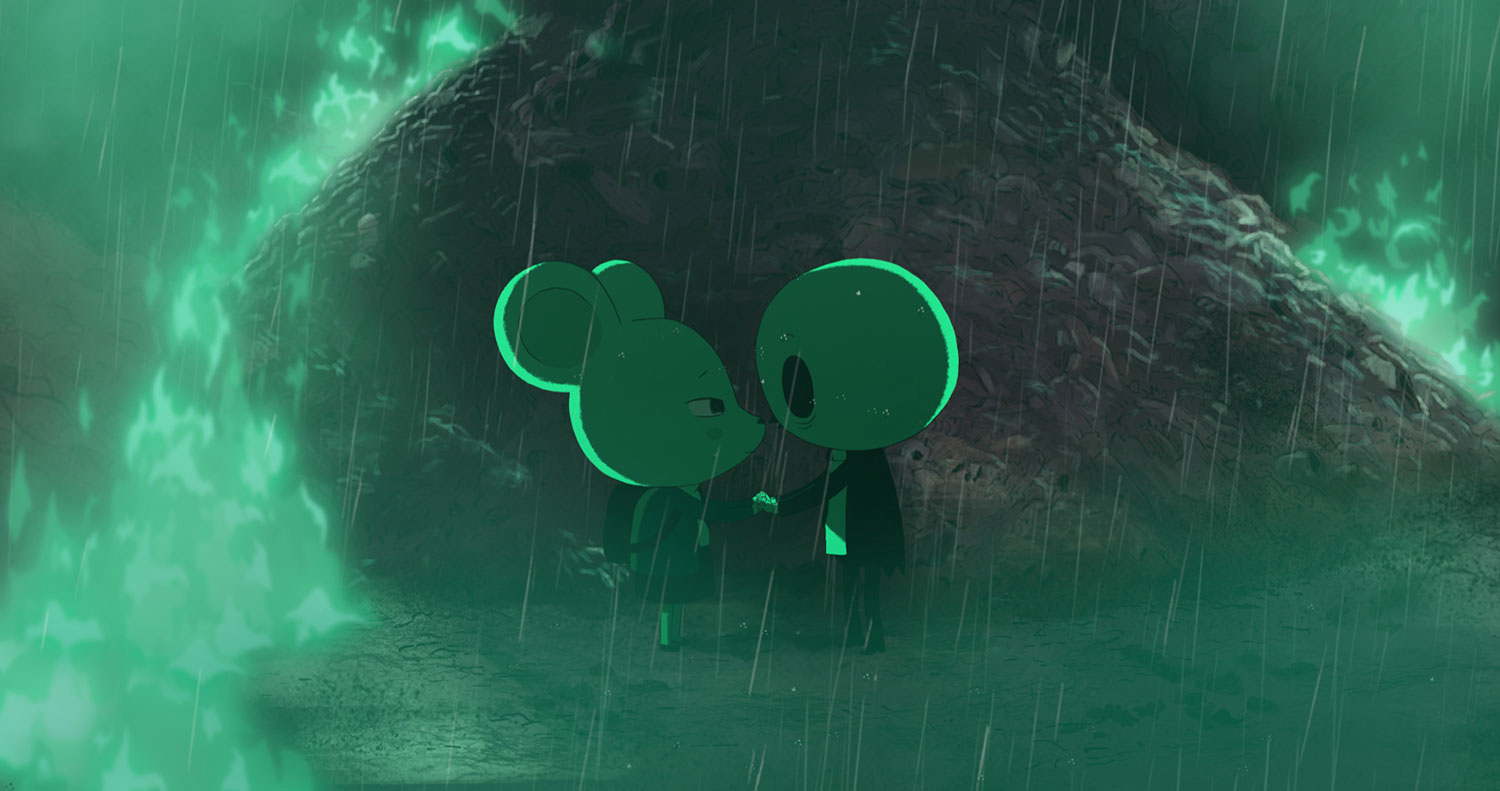Due to the common affliction of being an enormous wimp when it comes to all things creepy, sinister or generally alarming in films, it means that I passed on movies such as “The Killing of a Sacred Deer,” “mother!“, “Raw” and “IT” this year. All of which is context when I say “Birdboy: The Forgotten Children” possesses some of the most haunting imagery I’ve witnessed in film across the past twelve months. Based on a short film and ideas from director Alberto Vazquez‘s original graphic novel, “Birdboy: The Forgotten Children” conjures up visuals so bleak, that you’ll be in need of mindless, sitcom based fun afterwards so you don’t go to bed with the cries of anamorphic animals in your head. It’s a story that only could’ve successfully been told through the animation medium. It allows a world confined to the characters’ isolated piece of land to feel vast and inhabited by a colorful array of subjects, while also depicting the headspace of our characters who are tormented by internal and external forces.
Following an ecological disaster, Birdboy has effectively become a recluse, on the run from unknown dangers. His friend Dinky and a host of others are trying escape their island to a more forgiving place, but the terrors around them make it difficult for them to succeed in their goal. Directed by Vazquez and Pedro Rivero, the film tackles themes of abandonment, addiction and what happens when a society has all but left the innocent behind.
While some still view animation as a lesser (or, at least, more juvenile) artform, the medium has conjured some of film’s most tragic, cinematic images. From the faces of starving, soot covered children in “Grave of Fireflies” to the monstrous form that terrorizes Tokyo in “Akira,” to the pain elicited in “Perfect Blue” and the marching despair of “Waltz for Bashir,” animation, beyond more popular fare, has always been daring in its depictions of individual and global trauma. Even more child friendly adventures such as the oeuvre of Hayao Miyazaki pursues complex themes with more dignity and depth than the commodity driven pictures of Hollywood. To diminish the medium is to miss out on beautiful, cinematic expressions which can often expand our minds more fruitfully than that of its live action partners. ‘Birdboy’ is just such an example, taking viewers on a harrowing journey, made even moreso due to the juxtaposition of the friendly, childlike designs of the leading characters and the sunken, rotting world they live in.
The artistry on display is superb, allowing surface level crude, hand drawn pictures to be simultaneously lovely and jarring. A dystopian fable that meditates on those left in between, it would feel disingenuous for the film to present a Disney-esque sheen. Instead, the imagery where eyes are purposefully left from being completely filled in and wide shots that allow gaps where color might usually filter in, add to the grim atmosphere.
These characters aren’t all so pure either and the way this is portrayed is marvelously unsettling. Whether it manifests itself in a manipulative spider representing the clutches of addiction or shadowy figures that whisper cruelties and wants for violence into the protagonists ears, darkness lives seeps into every corner. Birdboy consumes copious amounts of drugs to numb the demon that threatens to engulf him. What that demon is or what it represents is left for the viewer to decide, but it’s not hard to imagine the rage, sorrow or violence that might flare up in someone tragically left to be swallowed up whole by the world around him.
After a while, the film becomes burdened from just how much the characters are visibly suffering, with the story exhausting itself on that singular mood. However, whether you enjoy it or not, you’ll have trouble forgetting this distinct picture. What makes “Birdboy: The Forgotten Children” so effective is the ability to turn the innocent into the macabre. An alarming tale that offers little hope or reprieve for its characters, ‘Birdboy’ may not be as favored as other 2017 titles such as “Coco” or “The Breadwinner” but the pictures will stay with you, wanted or not, for much longer. [B]





